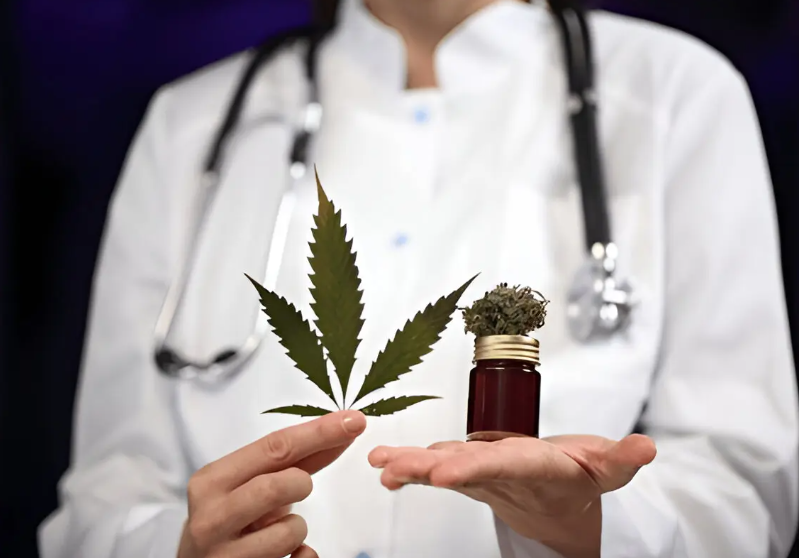
Introduction
Spasticity is a common and often disabling symptom found in people with multiple sclerosis, spinal cord injuries, cerebral palsy, and stroke. It is characterized by the inability of muscles to relax or by involuntary contractions, caused by faulty communication between the brain, spinal cord, and muscles. This leads to tightening of the muscles, spasms, pain, and difficulty performing daily activities.
Traditional treatments such as baclofen, tizanidine, diazepam, botulinum toxin injections, and physical therapy are widely used. While these therapies may help, they often come with side effects like weakness, drowsiness, or fatigue, and the relief is sometimes inconsistent. This has encouraged many patients to explore alternative therapies — among them, medical marijuana.
How Medical Marijuana Helps Muscle Spasticity
The Endocannabinoid System
Medical marijuana works by interacting with the body’s endocannabinoid system (ECS), which regulates pain, inflammation, muscle control, and nerve signaling. Cannabinoids such as THC and CBD bind to receptors in the brain and spinal cord, reducing excitatory impulses and calming overactive muscles.
THC and CBD in Action
THC has been shown to reduce excitatory neurotransmitters, directly calming spasms.
CBD offers anti-inflammatory and neuroprotective effects, which can indirectly improve spasticity.
Together, they provide relief from stiffness and reduce the intensity of muscle spasms.
Clinical Evidence
Nabiximols, an oral spray containing THC and CBD, is approved in several countries to treat multiple sclerosis-related spasticity. Clinical trials show that it improves mobility, reduces pain, and enhances quality of life. This evidence supports the broader use of cannabis in other conditions with spasticity, such as cerebral palsy and spinal cord injuries.
Patient Benefits Beyond Muscle Relief
Medical marijuana for muscle spasticity has been reported to:
Reduce painful spasms
Improve mobility and muscle relaxation
Enhance sleep quality
Decrease pain levels
Support better mental health and overall well-being
Some patients find that cannabis provides relief where other treatments fail. Others use it alongside traditional therapies, reducing their reliance on higher doses of medications that often cause unwanted side effects.
The Kentucky Medical Marijuana Program
Legal Recognition
Kentucky is among the latest states to legalize medical cannabis for qualifying conditions, including muscle spasticity. This provides patients with a legal and structured way to explore cannabis-based treatments.
How the Program Works
Medical Consultation – Visit a licensed healthcare provider for evaluation.
Written Certification – If eligible, your provider issues certification for cannabis use.
Medical Marijuana Card – Apply to the state registry for your official patient card.
Dispensary Access – Use your card to purchase approved cannabis products from licensed dispensaries.
Begin Treatment – Start with low doses and adjust under medical supervision.
Approved Forms of Cannabis
Kentucky law prohibits smoking cannabis, but patients can use edibles, oils, tinctures, capsules, and vaporized products. The program also regulates dosage and product strength, ensuring safe and consistent access.
Risks and Considerations
While cannabis offers benefits, it is not free from risks. Side effects may include:
Dizziness or drowsiness
Mood changes
Memory or coordination issues at high THC doses
Impaired concentration
For this reason, patients are advised to start with a low dose, monitor effects, and work closely with a healthcare provider. Every patient responds differently, and careful management ensures the best balance of benefits and risks.
Looking Ahead: The Future of Cannabis in Spasticity
Kentucky’s recognition of spasticity as a qualifying condition is a major milestone. As research grows, new cannabis-based medicines may emerge that are even more targeted for spasticity. The state’s program also opens the door for further scientific studies, ensuring patients continue to benefit from safe, effective therapies.
Conclusion
Medical marijuana for spasticity provides a promising option for people whose lives are limited by stiffness, spasms, and pain. For many, it means improved mobility, better sleep, and restored independence. With Kentucky’s new medical cannabis program, patients finally have safe and legal access to explore this alternative.
When used responsibly and under medical supervision, cannabis has the potential to transform the quality of life for thousands of Kentuckians living with muscle spasticity.
Name : Kentucky Medical Marijuana Program
Phone : 2702775589
Address : 1215 Nebo Rd, Madisonville, KY 42431, United States

